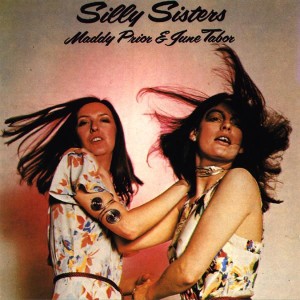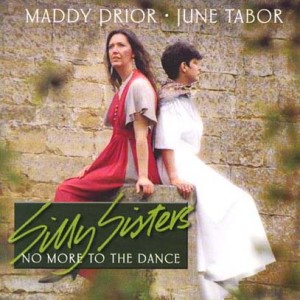 Take two of English folk music’s most phenomenal female vocalists, a lineup of backing musicians drawn from the best the field has to offer, and some terrific songs, and what do you get?
Take two of English folk music’s most phenomenal female vocalists, a lineup of backing musicians drawn from the best the field has to offer, and some terrific songs, and what do you get?
Everything you could hope for from a combination like that.
Harmonies ringing and resonating like fiddle chords; flawless singing; solo and duo tracks highlighting the strong points of all concerned: the musicianship deserves a review unto itself. The breathtaking level of artistry leaves Prior and Tabor sounding effortless as they trade places on melody and harmony, creating a glorious tangle of sound that it may take you several happy years to sort out, unless you already know the songs and the singers.
If I had to characterise the difference between Prior and Tabor, I’d say earth and air. This is a little paradoxical, given that Maddy Prior’s voice is the higher of the two; and yet her voice always has some English soil clinging to its roots – a tone far too clear and clean to be described as rough, to be sure, but somehow there’s something to it that never lets you forget she can put a little rasp in her delivery any time she pleases.
The vocal style of June Tabor, on the other hand, is pure as the air of Elfland; when she unleashes her scorn or her wrath, it cuts like the North Wind; and when she sings of sorrow, it’s a sorrow somehow remote, dispassionate as the twilight, and all the more terrible for that.
 In fact, based on her solo albums, it’s a little hard to think of Tabor as silly – tragic, bitter, melancholy or sublime by turns, but rarely silly. And yet in company – particularly with Prior – she seems to kick these traces from time to time, and each of the duo’s albums has some highly amusing songs: from the bawdy 16th-century lament of “My Husband’s Got No Courage In Him” to the marital bickering of “The Barring Of The Door”. “Merry” is probably a more accurate description of the Sisters’ light-hearted material than “silly”, all things considered; but it doesn’t alliterate nearly as well, so there you are.
In fact, based on her solo albums, it’s a little hard to think of Tabor as silly – tragic, bitter, melancholy or sublime by turns, but rarely silly. And yet in company – particularly with Prior – she seems to kick these traces from time to time, and each of the duo’s albums has some highly amusing songs: from the bawdy 16th-century lament of “My Husband’s Got No Courage In Him” to the marital bickering of “The Barring Of The Door”. “Merry” is probably a more accurate description of the Sisters’ light-hearted material than “silly”, all things considered; but it doesn’t alliterate nearly as well, so there you are.
It would be difficult for me to pick out the best tracks on these two albums – and impossible to pick out the worst. There isn’t a weak piece in the lot. But take a listen to “Auchidoon” on the first album, or “Agincourt Carol” on the second, for a jaw-dropping pair of examples of just how well two divas can co-operate.
My personal favourite would probably be “Geordie” — one of the happier versions of the song, where the woman does succeed in ransoming her lover’s life and liberty. (Other versions typically wind up with her pregnant and Geordie dead.) Between some fine guitar work by Martin Carthy — typifying his uncommon ability to carry a droning rhythm and a brisk melody at once — and the power of Tabor’s singing, it’s a classic in itself. All right, I admit it, it’s hard for me not to appreciate a song that ends with a woman avowing that “the blood would have flowed upon the green, before I lost my laddie.” To which Geordie, no fool, responds, “The fairest flower of womankind is my sweet bonnie lady.”
Ah, Highland romance.
But the springtime merriment of “Dame Durdan”, featuring (among other things) Carthy’s guitar, Andy Irvine playing mandolin, Danny Thompson on bass, and both ladies singing, is another perennial contender, and one that has had me whistling on long walks from time to time ever since the ’70s. The song rollicks, and it invites you to rollick right along with it. If you can resist, your disposition is more sour than mine.
On the second album, there’s a whole different crew of musicians backing the ladies – most conspicuously Dan Ar Bras on electric guitar. But in both cases, as strong as the instrumental arrangements are, it is the Sisters who steal the show. (And it is their show, after all.) It can take a lot of listening before you get past the stunning quality of the vocals to pay attention to some fine backup, served up by a large assortment of first-rate players.
The first album has been called the best acoustic folk album of the ’70s. In a decade conspicuous for quite a number of contenders for that honour, I’m not sure I could go that far, particularly since I think Thompson is playing an electric bass. Nevertheless, both Silly Sisters and No More To The Dance offer a high-water mark of harmonic and instrumental quality that has rarely been equaled and never excelled.
(Chrysalis, 1976)
\(Shanachie, 1988)



